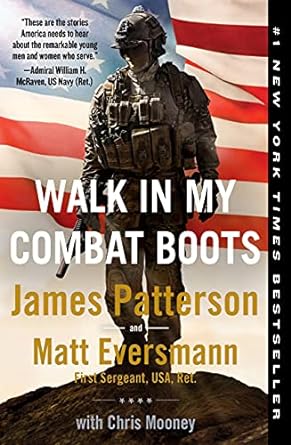May Leader Blog-"Ethical Dilemma Zone:Practice What You Preach"
By Brigadier General (Retired) John H. "Jack" Grubbs, Ph.D., Sunday, January 01, 2017
". . . while men and women may compete vigorously, and forever strive for perfection in reaching for the great intangibles, the virtues of good character, there are none who will be perfect."
— Bill McWilliams
"A Return to Glory: The Untold Story of honor, dishonor, and
triumph at the United States Military Academy, 1950-1953."
This month’s discussion is sensitive, very sensitive. I could write on any of an almost never-ending list of topics concerning leadership; but, as a retired United States Army officer, I have been burdened with mentally rehashing major ethical transgressions made by senior active-duty and retired military officers. It serves no purpose to start with name-calling, but I will candidly tell you that I feel betrayed. I can’t even imagine what the young men and women of our military think about the examples of poor leadership they have witnessed or learned about through the news media. Unfortunately, the fact that the vast majority of military leaders (officers, non-commissioned officers and enlisted personnel) conduct themselves to a high ethical standard, their “stand-up” character can be significantly diminished by the few who have garnered the national spotlight for bad behavior. The same phenomenon applies to business; one only has to look at the case study of Enron to understand how the rank and file of a company suffers under the actions of senior leadership.
The tipping point for this discussion begins with specific unethical actions taken by general officers; those actions include adultery, abuse, misuse of government funds, and perjury. Given that the one key ethic of the American military is “You don’t leave your buddy,” the actions taken by these officers were clear cases of “leaving” those who were supposed to be led. To his great credit, General Martin Dempsey, Chairman of the Joint Chiefs of Staff, has initiated a 360-degree review of military leaders, to include peers and subordinates. That’s what CEO’s need to do – take charge in crisis situations. Bugs will need to be eliminated in order for such a system to work in the profession of war, but, if done right, the payoff could be immense.
Adherence to strong ethical values is the cornerstone of great leadership. My personal observations of leadership bring me to the realization that both the corporate and military communities are challenged by what I call “The Ethical Dilemma Zone”. Let me give you a simple analogy, beginning with an everyday example:
You’re driving down a major street in your city. As you approach a stoplight in front of you, the light changes from green to yellow. Immediately, emotional and physical sensations rise from the rapidly changing conditions. Those conditions (in the form of questions) include: How fast are you traveling? How far are you from the intersection? What time remains until the yellow turns to red? What other traffic is there? What time of day or night is it? What is the length of your vehicle (an 18-wheeler or an SUV)? How wide is the intersection? In facing some or all of these situations we have encountered a form of “The Dilemma Zone”. Do you step on the gas or do you hit the brakes? If you hit the brakes, you sense a physical response akin to the “fight or flight” phenomenon; if you step on the gas, you face the possibility of running a red light and/or possibly causing an accident – and running a red light is breaking the law. With that decision comes a natural fear of either “getting caught” or “getting hurt”. Try as you may, it’s hard not to feel the “uh-oh” feeling of guilt.
Decision making among leaders often involves the ethical dilemma zone. Just like the frog in a pan of water that dies from heat applied one degree at a time, slipping from ethical to unethical behavior often occurs along a continuum one step at a time. At what point do you experience the “uh-oh” feeling; more importantly, how does that emotion affect your decisions. Each of us has a different set of values – the difference among us may be infinitesimal or the difference may be extreme, but there is a difference. In his novel “No Second Chance,”[1] Harlan Coben provides an excellent description of the bitter move towards the wrong end of the ethical dilemma zone:
“You slip-slide into evil, he thought. You cross the line for just one moment. You cross back. You feel safe. You change things, you believe, for the better. The line is still there. It’s still intact. Okay, maybe there’s a smudge there now, but you can still see it clearly. And next time you cross, maybe that line smudges a little more. But you have your bearings. No matter what happens to that line, you remember where it is. Don’t you?”
As the quote at the beginning of this blog states, “There are none who will be perfect.” But not being perfect is no excuse for not seeking ethical perfection in our decision-making. For those who have failed to meet proper standards of conduct, they can “rise like a Phoenix” and change the manner in which they make decisions. From my foxhole, it’s a matter of practice.
Practicing ethics resides in the reverse of the Coben passage above. Suppose you know that your ethical standards are not where they need to be at sunrise today. You make a decision that today you will change – but only for today. You walk on a road higher than yesterday. It feels pretty good. Maybe tomorrow you can practice doing it again, taking a new next road that is even higher. So you do. That felt even better. Positive ethical behavior becomes its own energy source. Each new day becomes more rewarding than the last – and your actions take on real human value. It becomes easier to make positive ethical decisions on a daily basis or during crises. It works – you change.
The above is akin to the rehearsal. In the military, the rehearsal is fundamental to tactical operations. By practicing strong ethics you will be prepared to make ethical decisions before the moment of decision. If you have ethical issues and don’t take charge of your behavior through practice, you are setting yourself – and your organization – up for failure.
Twenty-six years after his actions at the Battle of Little Round Top, saving the Union line at Gettysburg, Joshua Chamberlain spoke at the dedication of a monument for his regiment, the 20th Maine.
“We know not of the future, and cannot plan for it much. But we can hold our spirits and our bodies so pure and high, we may cherish such thoughts and such ideals, and dream such dreams of lofty purpose, that we can determine and know what manner of men [and women] we will be whenever and wherever the hour strikes that calls to noble action . . . no man [or woman] becomes suddenly different from his [or her] habit and cherished thought.”
— Joshua Chamberlain
Dedication of the 20th Maine Monument
Gettysburg, Pennsylvania
His words are as relevant today as they were on October 3, 1889.
[1] Coben, Harlan, “No Second Chance,” Dutton, a member of Penguin Group, New York, New York, 2003.
Brigadier General Jack Grubbs, Ph.D.
 Expertise: Leadership, ethics, teambuilding, strategic planning, coaching Experience: General Grubbs has more than five decades of leadership experience in the United States Army, academe, and as a business owner. His military assignments include two Vietnam tours as a combat engineer platoon leader, company commander (twice), and battalion operations officer with the 173d... Read More +
Expertise: Leadership, ethics, teambuilding, strategic planning, coaching Experience: General Grubbs has more than five decades of leadership experience in the United States Army, academe, and as a business owner. His military assignments include two Vietnam tours as a combat engineer platoon leader, company commander (twice), and battalion operations officer with the 173d... Read More +






